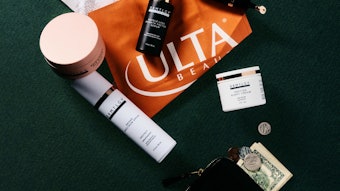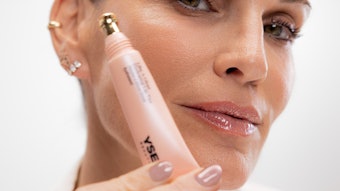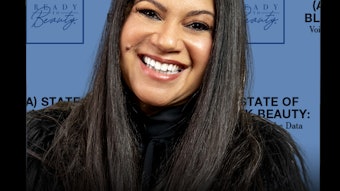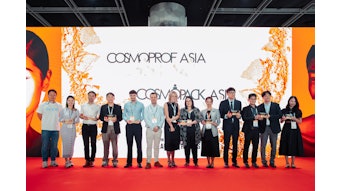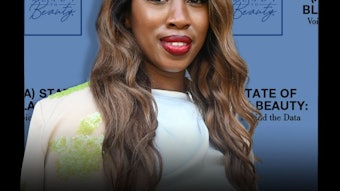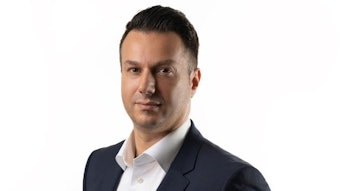Savvy beauty brands conduct research prior to launching SKUs or making major changes in many ways, with clinical research, online consumer studies and beauty product testing to name just a few. Increasingly, smart beauty brands are also including a tried-and-true qualitative method of testing before big changes: the focus group.
Focus group testing for the beauty industry holds a special appeal. The products we are selling are personal and often intimate, which gives us the chance to establish a special emotional bond with the consumer.
It also means she will watch very closely and with emotion each advertisement, communications and new product development or change you make. Focus groups allow brands to delve into her perceptions, opinions, beliefs and attitudes about products and messages in a unique, personal way.
A series of focus groups can help to test the theories and formulate the hypothesis for the next level of study, or to dive deeper into quantitative survey results already conducted.
Here are seven reasons to consider adding focus groups to your marketing mix.
1. The woman of your dreams is sitting 10 feet away.
Focus group recruitment is highly targeted, with each group consisting of 5-10 participants who mirror your exact target customer. This enables you to see and hear honest feedback about your brand from just the consumers you are trying to win in a short time frame.
As a brand, you have control over the panelists in your focus group. If you are a prestige brand selling cosmetics only at high-end department stores and at Sephora, your research partner will be able to develop a “screener” to recruit panelists who shop at those very stores and spend “X” number of dollars per year on cosmetics.
Or, if your brand sells primarily to a specific age or ethnic group, your recruitment can be screened accordingly, and you’ll hear from the consumers who matter most to you.
2. You can mix it up.
When conducting focus groups, we generally recommend three groups of “like” participants. Although there is no statistical validity to focus groups since they are qualitative in nature, patterns emerge from one group to the next, and you won’t want to rely on just one group’s input for guidance.
That said, you can ask similar questions to groups that are different from one another, for a multifaceted perception. For example, a brand wanted to know the opinions from three groups of brand loyalists, and three groups of women who have never tried the brand.
The differences in perception between the groups gave the brand important feedback for adjusting its messaging to women who haven’t tried the brand previously, as well as how to strengthen messages to its loyalists.
3. Quick turnaround of results.
Focus groups are one of the fastest ways to get a great detail of consumer feedback. In just four weeks, your research partner should be able to reserve a focus group facility, develop a screener and moderator’s guide, recruit the participants, conduct the focus groups and present the final report of strategic findings to you.
4. Physical signals are priceless.
As you sit behind the double-sided mirror and watch your focus group in action, you are able to see how the panelists interact with your product.
Are they using it as you intended it to be used? Are they having trouble opening it? Do they understand the directions instantly?
Watching a group also allows you to notice facial expressions that are a crucial giveaway to her true feelings. Along with a squeal of glee at smelling, tasting or using a product for the first time, a subconscious furrowed brow sends an instant message!
Immediate reaction to a product’s message, package or sensory application can be a strong indicator of buying behavior.
Today’s more sophisticated focus group facilities also offer other high tech capabilities for capturing physical reactions. Eye-charting capabilities, as an example, can track where a respondent’s eyes look first—or last—when presented with a product or message, allowing you to adjust messages or imagery for a stronger attraction.
5. Probing questions get to the root of the issue.
A good focus group moderator will have her moderator’s guide at the ready, with questions that she and you agree should be asked. Focus groups don’t follow a linear progression with questions and answers, though, because it’s intimate and conversational.
Respondents might provide an answer to a question about a product or message, with an example of a product or message that appealed to her more. The moderator should be able to quickly probe for deeper answers based on the developing conversation, while keeping the group on track.
Focus groups are one of the only means of delving deeply into conversations to uncover explicit, usable information.
6. More than you bargained for.
One of the greatest reasons to conduct focus groups is to find new ideas for products or services based on need. Focus group participants love to share their product frustrations, wants, needs and the solutions they’d like to find. Well-conducted focus groups bring out creative, insightful ideas from participants, where all input is welcomed and encouraged.
7. Validation of a concept or avoiding million dollar mistakes.
So often we feel we know what the consumer is going to say, feel or think. We’ve identified the advertisement, model, perfume bottle shape or product name that we’re convinced is the winner.
Thirty minutes into the first focus group we’re surprised and dismayed that our favorites are being given the thumbs down and a few ideas we didn’t think were so hot are the talk of the table. We counsel clients that it’s good to hear what we feel uncomfortable hearing. This is why we’re listening—so we can improve and meet her real needs.
One of my favorite case studies is an international skin care company who felt the customer was not relating to their brand. It was decided to renew the brand, and the machine began with several new images evolving.
The basis for the theory that the customer was not relating as well to the brand was solely executive intuition. In a series of several multicity focus groups, it became quickly apparent that not only did the customers love the brand, they had very little interest in even the slightly altercation to it.
However, several key insights evolved that helps the company to see where it could strengthen the brand relationship. The non-rebranding “campaign” saved the company more than $20 million.
Focus groups are most commonly by beauty brands for these reasons:
- Brand awareness
- Message testing
- Advertising/infomercial testing/awareness
- Package design testing
- Product/company name change testing
- New concepts/SKUs
- Simple use testing

